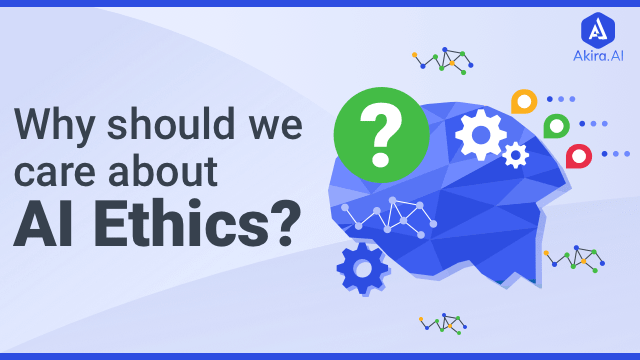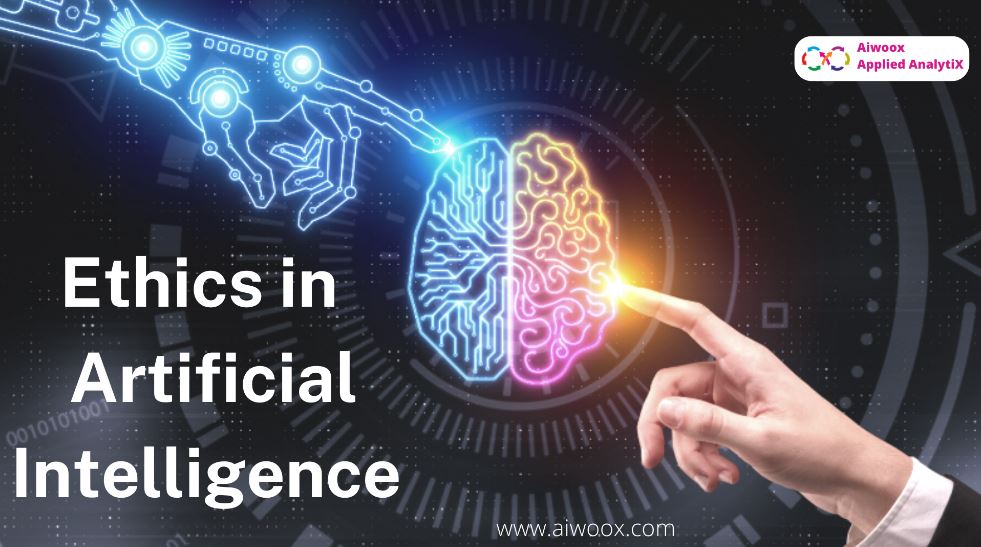Harnessing the Power of Ethics in Artificial Intelligence: The Future is Now

As we enter a new era of technological advancements, one question is on everyone’s mind: What does the future of artificial intelligence (AI) hold? From self-driving cars to personalized medical diagnoses, AI has transformed many industries and improved countless lives. However, as AI becomes an integral part of our daily lives, it’s essential to ask: What are the implications of this technology on our society, and how can we ensure that it’s used for the greater good?
In recent years, concerns over AI ethics have gained significant attention. As AI continues to evolve, it’s crucial to address the impact of this technology on individuals, communities, and society as a whole. In this article, we’ll explore the significance of ethical AI, its benefits, and the actions we can take to promote responsible AI development.
What is Ethical AI?
Ethical AI refers to the practice of developing and deploying AI systems that prioritize human values, such as fairness, transparency, accountability, and respect for autonomy. This involves applying moral principles to AI design, implementation, and usage, ensuring that the technology is aligned with societal norms and expectations.
Why is Ethical AI Important?
Ethical AI is essential in today’s digital landscape for several reasons:
- Bias Prevention: AI systems can perpetuate biases if they’re trained on biased data or designed without consideration for diverse perspectives. By incorporating ethics into AI development, we can minimize the risk of bias and ensure that AI is inclusive and representative.
- Transparency and Explainability: As AI becomes more pervasive, it’s crucial to understand how it works and make its decision-making processes transparent. This transparency is vital for building trust and accountability in AI development.
- Data Protection: AI systems often rely on vast amounts of personal data. By prioritizing data protection, we can safeguard individuals’ information and maintain confidentiality.
- Accountability and Liability: As AI systems become more autonomous, it’s essential to establish clear accountability and liability frameworks to prevent unnecessary legal and financial repercussions.
Benefits of Ethical AI
By incorporating ethics into AI development, we can unlock numerous benefits:
- Improved Public Trust: When AI systems are transparent, accountable, and unbiased, people are more likely to trust and adopt them.
- Increased Adoption: By addressing concerns around bias, data protection, and accountability, organizations can accelerate the adoption of AI and capitalize on its potential.
- Enhanced Innovation: By prioritizing ethics, AI developers can foster innovation, creativity, and critical thinking, leading to more effective and sustainable solutions.
- Better Decision-Making: Ethical AI can enable better decision-making by considering diverse perspectives and prioritizing human values.

The Role of Developers in Promoting Ethical AI
As AI development continues, it’s crucial that developers take the lead in promoting responsible AI practices:
- Code with Ethics: Developers should integrate ethics into AI development, designing systems that prioritize human values.
- Analyze and Address Bias: Regular bias assessments and iterative testing can help identify and mitigate potential biases.
- Document AI Decision-Making Processes: Transparency is key to building trust; developers should document AI decision-making processes to ensure accountability.
- Continuously Update and Refine AI Systems: As our understanding of ethics and AI evolves, developers should continuously update and refine their systems to maintain responsibility.
What Can You Do to Promote Ethical AI?
As AI continues to shape our world, individuals, organizations, and governments have a responsibility to promote and support responsible AI development:
- Learn About AI Ethics: Stay up-to-date on AI ethics principles and research to stay informed about the latest developments.
- Support and Engage in AI-related Initiatives: Get involved in local AI initiatives or organizations working on AI ethics, advocacy, or activism.
- Demand Transparent AI: When interacting with AI systems, request information about their decision-making processes and demand transparency.
- Collaborate with Others: Engage in conversation with developers, policymakers, and other stakeholders to promote and develop AI ethics frameworks.
The Future of AI: Empowering Responsibility and Accountability
As AI continues its rapid growth, it’s our collective responsibility to ensure that this technology is used for the greater good. By embracing ethics and promoting responsible AI development, we can foster innovation, build trust, and create a better future.
As you read this article, remember that the future of AI is in your hands. Share this article with others and spark a broader conversation about AI ethics.
Make Your Voice Heard
Will you share this article and join the movement towards a more responsible AI future?
Share this article with friends, family, or colleagues to spark a conversation about the importance of AI ethics.


